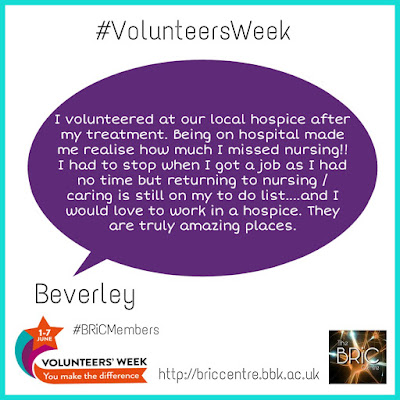Depression. It's a word that has come into our everyday language, sometimes in ways which are not so helpful. We all feel sad, we all feel low, but when someone experiences depression, these feelings persist for weeks and months. Depression is not a sign of weakness. It's not something someone can simply "snap out of."
Clinical depression affects people in different ways and takes many forms, including feeling sad and unable to cope with everyday life, feelings of pointlessness, desperation and in severe depression, suicidal thoughts. It can cause physical symptoms like fatigue, pain, insomnia and loss of appetite too. Depression can be a lifelong problem for some, with episodes being triggered by stressful life events and experiences which are traumatic - like a diagnosis of breast cancer. Depression can also come in cycles, seemingly without any particular trigger.
We poured our hearts out, women with a primary breast cancer diagnosis and women with secondary breast cancer, sharing some of our personal experiences of depression. We described dark days with no zest for life, a weariness that took away our motivation to carry on.
Many of us described becoming depressed once active treatment had ended; the hospital appointments cease and, with them, the structure that kept us going; everyone around us expects us to be back to our old selves; it’s time to go back to work or other routines. However, we feel shaken and lost, our confidence shattered by the whole trauma of invasive surgery and treatment. It’s easy to see how depression can either creep up on us, or hit suddenly as the enormity of what we've just been through hits home.
The debilitating effects of hormonal treatments taken by so many women, or, early menopause symptoms, increase the psychological demands we face, causing us to experience mood swings and fatigue at a time when we are already psychologically vulnerable.
Women with secondary breast cancer face unique psychological challenges - living with the knowledge that we cannot be cured, our treatment is ongoing and our regular scans and checks cause great anxiety as the quest to halt progression continues. We cherish every day, but we can also experience bouts of deep depression as the relentless treatment regime punishes our bodies and minds.
Depression can make us feel worthless, it can strip us of all joy in living. Fortunately help is available. Many of us shared that we had found talking therapies such as counselling, psychotherapy, Cognitive Behavioural Therapy and support groups helpful. Exercise - in many forms - can also be helpful. Anti-depressants and sleeping tablets have their place too.
Depression can mean we have to rest and take time away from work and possibly family leading to isolation and contributing to feelings of hopelessness. Some of us spoke about times in our lives when we felt we could no longer carry on. We also described how something or someone prompted us to reach out for help, to seek support from professionals, family and friends to get better.
For many of us, a first encounter with serious ill health or depression taught us how to look after ourselves. We learn to spot signs of sinking into depression and seek help to prevent it before it gets a stronghold. We learn to practice extreme self-care, and to reach out to each other for support.
Naz explained that depression presents an evolutionary paradox to scientists. Is depression a cry for help? Is it an attempt to conserve resources? Does it represent an exhausted brain? Is it a consequence of chronic anxiety? Is it a state of no hope, helplessness, and repeated failure? There is no future to look forward to. Is it a chemical imbalance?
Depression, Naz told us, is all of these things, but mostly it signals an exhausted brain, a brain so full of fear, anxiety and negative and traumatic thoughts that no room remains for cognitive thinking and common sense is replaced by irrational hopelessness. The neural pathways involved in goal driven behaviour are no longer working efficiently, and there is a reason for this. They can’t.
However desolate depression makes us feel, there is always a way back up. Naz told us how we may learn to thrive following depression, as our severely depleted brain resources slowly but surely return to normal. We can, with the help of others, bring ourselves back from the brink by training our brains to respond differently, by practicing cognitive focus.
There may come a time when we can use our depression to our advantage, beating it down with determination and our will, our desire to overcome adversity and thrive again.
This article highlights that we can learn to shake off depression, we can grow through it and beyond it to a place of strength where neither depression nor cancer defines us. This is our resilience.
https://
If you are a woman living in the UK with a breast cancer diagnosis and you would like to join our private group please send us a private message via https://www.facebook.com/resilienceinbreastcancer/















